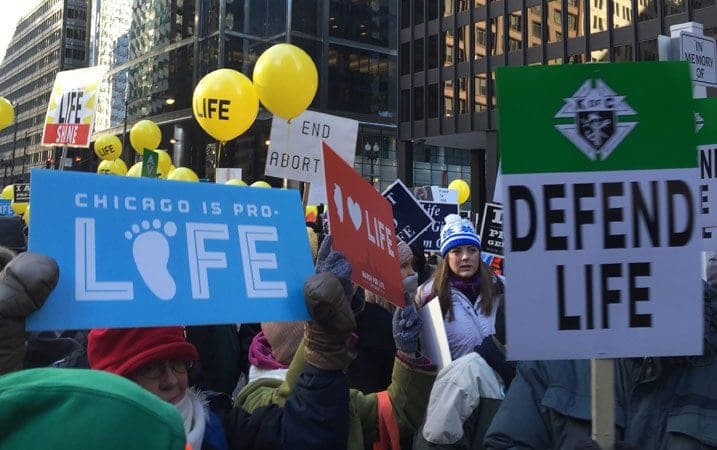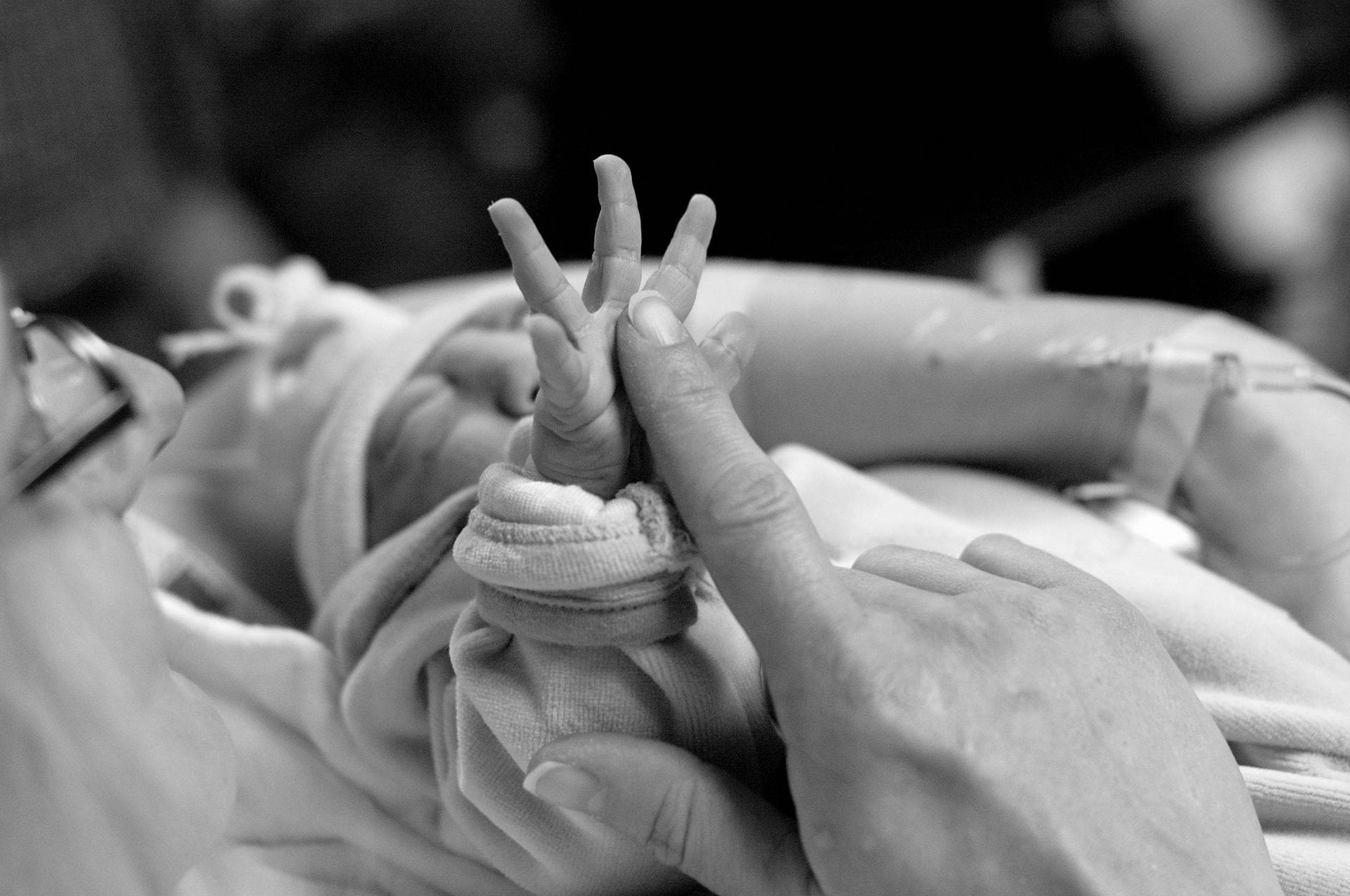CHICAGO — With temperatures in the single digits and wind chills well below zero, Archbishop Blase Cupich did his best to warm up the March for Life crowd gathered at Federal Plaza Sunday afternoon.
“This isn’t cold, this is Chicago,” Cupich said with a smile.
The goal of the rally, Cupich said, was “to make space,” not just for the march, but “for young people to come into the world, to realize that the womb should not be their tomb, that their lives matter, and that we should make room at the table of life for them.”
Every child, the archbishop said, “has been given life by God. Not given life by us, but given life by God. That’s why it should be protected.”
Cupich was one of several speakers who, along with thousands of attendees, braved bitter cold temperatures at a March for Life rally in downtown Chicago, five days before the 43rd anniversary of the US Supreme Court’s Roe v. Wade decision legalizing abortion nationwide.
Emily Zender, executive director of Illinois Right to Life, told the crowd that they were rallying “because 56 million unborn children’s lives have been ended.”
She urged them to take a moment of silence and “call to mind love, love for the unborn children, love for those in the abortion industry who will wake up tomorrow and do it all over again, and love for those hurting from abortion.”
Event organizers said they expected 7,000 participants from six Midwestern states for the rally and parade. There was no immediate estimate of how many turned out.
One participant said she came to the march to share her experience working with women facing unplanned pregnancies.
“I understand the human side, the difficulty that they face, and what it means to them to have support,” said Monika Stutzman, 22, of Sheridan, Illinois. “Because of the women I work with, I know the difficulty they had in choosing life, and seeing the reward they’ve had in making the right decision is really amazing.”
Another marcher said he hopes the event can change minds about what constitutes human life.
“We hope to open some eyes to see fetuses as more than just lifeless beings,” said Ayo Ajayi, a student at Chicago’s St. Patrick High School who is part of the Shamrocks for Life club.
But not everyone who braved the cold was on board.
A group of abortion rights protesters held a counter rally across the street. At one point, two of those protesters made their way to Federal Plaza, where several Chicago police officers stood between them and the March for Life participants.
The Chicago event mirrors the March for Life in Washington, DC, scheduled for Friday, which bills itself as “the largest pro-life event in the world.” It’s been held every year since 1973, when the Supreme Court legalized abortion in the United States.
The nation remains split on the issue, and recent polls suggest Catholics are no different.
Church teaching prohibits abortion in all cases, but a 2014 Univision poll found that 76 percent of Catholics in the United States believe that abortion should be allowed in some or all cases. Yet a 2015 Pew survey found that 57 percent of US Catholics believe abortion is a “sin,” about 10 points higher than the general population.
The debate over abortion rights erupted into the spotlight last summer when a series of secretly recorded videotapes released by the Center for Medical Progress claimed to show Planned Parenthood engaging in the illegal sale of human body parts obtained from abortions.
Planned Parenthood contends that the organization officials shown on the tapes were discussing legally allowed fees, and that the tapes were heavily edited. It filed a lawsuit against the organization this month, saying they were responsible for a dip in donations and for putting clinics in danger, pointing to the November clinic shooting in Colorado that killed three.
A speaker at Chicago’s rally, Republican Congressman Randy Hultgren, told the crowd that the tapes should spur them to action.
Another congressman, Democrat Dan Lipinski of Illinois, said that ending abortion goes beyond politics and religion.
“It’s not a Democratic issue or a Republican issue. It’s not a Catholic issue,” he said. “It’s an issue for everyone. It’s a human issue. We need to protect life.”
In recent years, anti-abortion activists have questioned how to convey their message, urging demonstrators to forego once-common placards depicting graphic images in favor of messages conveying support for so-called crisis pregnancies.
At Sunday’s march, organizers handed out oversized yellow balloons with “LIFE” printed on them in black letters, and many people held signs with a picture of a smiling Pope Francis and messages such as “You are not alone.”
One speaker urged participants to consider adoption, telling stories about his own adopted siblings and children.
Chicago’s march is co-sponsored by a number of religious organizations, and in addition to Cupich, included addresses from Bishop Paul Gassios of the Orthodox Church in America and the Rev. Corey Brooks, pastor of Chicago’s New Beginnings Church.
Brooks called on the crowd to expand their anti-abortion activism to include African American religious communities, and he led the crowd in a chant of “babies lives matter,” referring to the Black Lives Matter movement.
Because of the extreme temperatures, event organizers shortened the parade route and told speakers to keep their remarks to about two minutes.
Cupich obliged, trying to inject some warmth imagery into his speech.
“Let us also make sure that as we bundle ourselves in warmth,” he said, “that we want to make sure that children are also born into a world that warmly welcomes them.”


















